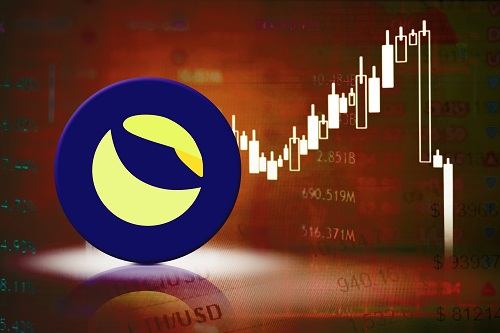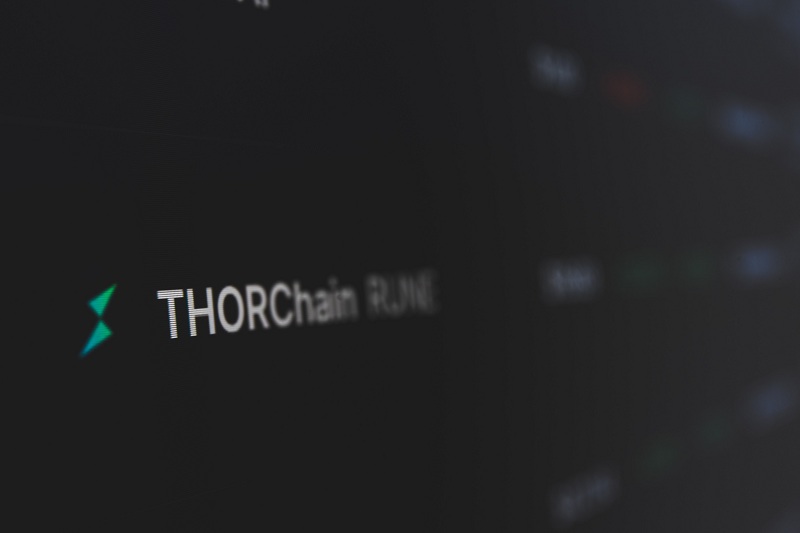Japanese crypto exchange Liquid, which now-collapsed FTX owns, announced plans to return customer assets that will begin in 2023. The process of asset return will be opened for the accounts holders with FTX Japan and Liquid Japan.
“For the assets entrusted to us by our customers at FTX Japan and Liquid Japan, we are proceeding with system development so that withdrawals will be possible from the Liquid Japan web version. Specifically, you will be able to check your FTX Japan balance from the Liquid Japan web version, and then you will be able to withdraw/take out,” Liquid stated in an announcement (translated from Japanese) on Thursday.
However, Liquid Japan users will be able to withdraw their holdings from the platform as usual.
Liquid halted all withdrawals on 15 November following the liquidity crunch faced by its parent company. In addition, the platform suspended all trading activities on 21 November, citing the Chapter 11 bankruptcy
Bankruptcy
Bankruptcy or insolvency constitutes a legal term and refers to being unable to repay debts. A business and a person can declare bankruptcy. When a person or company claims bankruptcy, it is described as a voluntary bankruptcy, and when your debtors force you into bankruptcy, it is referred to as involuntary. A voluntary bankruptcy occurs when the debtor or borrower, the party that owes the money files with the courts. Involuntary bankruptcy happens when your credits file a petition with the courts. Bankruptcy can only occur with a court filing. Since bankruptcy is a legal state, once the petition is filed with the appropriate court, local and state laws vary greatly. Different Kinds of Bankruptcy In the US, these legalities are referred to as Chapters 7 and 11, 12, and 13. Chapter 7 is a liquidation procedure, where all assets are sold, and the court oversees the distribution of the money to creditors based on their standing. Both businesses and individuals can file for chapter 7. Chapter 11 is a reorganization process where businesses are allowed to freeze their debts and continue to operate. In contrast, a method and procedure are negotiated through the courts to satisfy the obligations of the company. Chapter 13 is called a wage earner plan and helps people attempt to restructure their debts to repay their debts. This can include some debt forgiveness by creditors or reduced interest rates or balances. Not all private persons are eligible for Chapter 13, high amounts of debt don’t qualify, and the person must file Chapter 11 or 7. Most individuals choose Chapter 13 over Chapter 11 or Chapter 7 because it aids them in avoiding foreclosure on their residence. The filing of bankruptcy is considered a last resort when businesses and persons have not been able to negotiate terms directly with their creditors.
Bankruptcy or insolvency constitutes a legal term and refers to being unable to repay debts. A business and a person can declare bankruptcy. When a person or company claims bankruptcy, it is described as a voluntary bankruptcy, and when your debtors force you into bankruptcy, it is referred to as involuntary. A voluntary bankruptcy occurs when the debtor or borrower, the party that owes the money files with the courts. Involuntary bankruptcy happens when your credits file a petition with the courts. Bankruptcy can only occur with a court filing. Since bankruptcy is a legal state, once the petition is filed with the appropriate court, local and state laws vary greatly. Different Kinds of Bankruptcy In the US, these legalities are referred to as Chapters 7 and 11, 12, and 13. Chapter 7 is a liquidation procedure, where all assets are sold, and the court oversees the distribution of the money to creditors based on their standing. Both businesses and individuals can file for chapter 7. Chapter 11 is a reorganization process where businesses are allowed to freeze their debts and continue to operate. In contrast, a method and procedure are negotiated through the courts to satisfy the obligations of the company. Chapter 13 is called a wage earner plan and helps people attempt to restructure their debts to repay their debts. This can include some debt forgiveness by creditors or reduced interest rates or balances. Not all private persons are eligible for Chapter 13, high amounts of debt don’t qualify, and the person must file Chapter 11 or 7. Most individuals choose Chapter 13 over Chapter 11 or Chapter 7 because it aids them in avoiding foreclosure on their residence. The filing of bankruptcy is considered a last resort when businesses and persons have not been able to negotiate terms directly with their creditors.
Read this Term filing of the company in the United States.
The decision of Liquid to return customers’ funds came after a reassurance to its customers on 13 December that it has not forgotten its clients.
We are cooperating with FTX Debtors as it relates to Liquid. We have not forgotten about our users, and we will provide further updates when we can. Thank you for your ongoing patience and understanding.
— Liquid Global Official (@Liquid_Global) December 14, 2022
An Extensive Presence in Japan
The company closed the acquisition of Liquid and its subsidiaries last March. However, the companies did not disclose the financial terms of the deal. Apart from Japan, the platform has a presence in Singapore and Vietnam. However, the platform did not specify anything for the account holders from the other two countries.
In a court filing earlier this month, the company sought permission to sell four independent subsidiaries, one of which is FTX Japan. Meanwhile, Japan’s Kanto Local Finance Bureau suspended the operations of FTX Japan until 9 March 2023 following the Bahamas-headquartered cryptocurrency exchange.
Furthermore, the company is facing regulatory pressure from other global regulators. The financial market regulators in Australia and Cyprus also suspended the local licenses of FTX subsidiaries, while the Bahamas opened civil and criminal probes against the exchange. FTX’s Founder and former CEO, Sam Bankman-Fried, is facing criminal charges in the United States, while two other top executives have already pled guilty and are cooperating with the investigation into the exchange by US law enforcement.
Japanese crypto exchange Liquid, which now-collapsed FTX owns, announced plans to return customer assets that will begin in 2023. The process of asset return will be opened for the accounts holders with FTX Japan and Liquid Japan.
“For the assets entrusted to us by our customers at FTX Japan and Liquid Japan, we are proceeding with system development so that withdrawals will be possible from the Liquid Japan web version. Specifically, you will be able to check your FTX Japan balance from the Liquid Japan web version, and then you will be able to withdraw/take out,” Liquid stated in an announcement (translated from Japanese) on Thursday.
However, Liquid Japan users will be able to withdraw their holdings from the platform as usual.
Liquid halted all withdrawals on 15 November following the liquidity crunch faced by its parent company. In addition, the platform suspended all trading activities on 21 November, citing the Chapter 11 bankruptcy
Bankruptcy
Bankruptcy or insolvency constitutes a legal term and refers to being unable to repay debts. A business and a person can declare bankruptcy. When a person or company claims bankruptcy, it is described as a voluntary bankruptcy, and when your debtors force you into bankruptcy, it is referred to as involuntary. A voluntary bankruptcy occurs when the debtor or borrower, the party that owes the money files with the courts. Involuntary bankruptcy happens when your credits file a petition with the courts. Bankruptcy can only occur with a court filing. Since bankruptcy is a legal state, once the petition is filed with the appropriate court, local and state laws vary greatly. Different Kinds of Bankruptcy In the US, these legalities are referred to as Chapters 7 and 11, 12, and 13. Chapter 7 is a liquidation procedure, where all assets are sold, and the court oversees the distribution of the money to creditors based on their standing. Both businesses and individuals can file for chapter 7. Chapter 11 is a reorganization process where businesses are allowed to freeze their debts and continue to operate. In contrast, a method and procedure are negotiated through the courts to satisfy the obligations of the company. Chapter 13 is called a wage earner plan and helps people attempt to restructure their debts to repay their debts. This can include some debt forgiveness by creditors or reduced interest rates or balances. Not all private persons are eligible for Chapter 13, high amounts of debt don’t qualify, and the person must file Chapter 11 or 7. Most individuals choose Chapter 13 over Chapter 11 or Chapter 7 because it aids them in avoiding foreclosure on their residence. The filing of bankruptcy is considered a last resort when businesses and persons have not been able to negotiate terms directly with their creditors.
Bankruptcy or insolvency constitutes a legal term and refers to being unable to repay debts. A business and a person can declare bankruptcy. When a person or company claims bankruptcy, it is described as a voluntary bankruptcy, and when your debtors force you into bankruptcy, it is referred to as involuntary. A voluntary bankruptcy occurs when the debtor or borrower, the party that owes the money files with the courts. Involuntary bankruptcy happens when your credits file a petition with the courts. Bankruptcy can only occur with a court filing. Since bankruptcy is a legal state, once the petition is filed with the appropriate court, local and state laws vary greatly. Different Kinds of Bankruptcy In the US, these legalities are referred to as Chapters 7 and 11, 12, and 13. Chapter 7 is a liquidation procedure, where all assets are sold, and the court oversees the distribution of the money to creditors based on their standing. Both businesses and individuals can file for chapter 7. Chapter 11 is a reorganization process where businesses are allowed to freeze their debts and continue to operate. In contrast, a method and procedure are negotiated through the courts to satisfy the obligations of the company. Chapter 13 is called a wage earner plan and helps people attempt to restructure their debts to repay their debts. This can include some debt forgiveness by creditors or reduced interest rates or balances. Not all private persons are eligible for Chapter 13, high amounts of debt don’t qualify, and the person must file Chapter 11 or 7. Most individuals choose Chapter 13 over Chapter 11 or Chapter 7 because it aids them in avoiding foreclosure on their residence. The filing of bankruptcy is considered a last resort when businesses and persons have not been able to negotiate terms directly with their creditors.
Read this Term filing of the company in the United States.
The decision of Liquid to return customers’ funds came after a reassurance to its customers on 13 December that it has not forgotten its clients.
We are cooperating with FTX Debtors as it relates to Liquid. We have not forgotten about our users, and we will provide further updates when we can. Thank you for your ongoing patience and understanding.
— Liquid Global Official (@Liquid_Global) December 14, 2022
An Extensive Presence in Japan
The company closed the acquisition of Liquid and its subsidiaries last March. However, the companies did not disclose the financial terms of the deal. Apart from Japan, the platform has a presence in Singapore and Vietnam. However, the platform did not specify anything for the account holders from the other two countries.
In a court filing earlier this month, the company sought permission to sell four independent subsidiaries, one of which is FTX Japan. Meanwhile, Japan’s Kanto Local Finance Bureau suspended the operations of FTX Japan until 9 March 2023 following the Bahamas-headquartered cryptocurrency exchange.
Furthermore, the company is facing regulatory pressure from other global regulators. The financial market regulators in Australia and Cyprus also suspended the local licenses of FTX subsidiaries, while the Bahamas opened civil and criminal probes against the exchange. FTX’s Founder and former CEO, Sam Bankman-Fried, is facing criminal charges in the United States, while two other top…
Source link
Bitcoin(BTC)$69,056.005.65%
Ethereum(ETH)$2,054.107.63%
Tether(USDT)$1.00-0.01%
XRP(XRP)$1.413.87%
BNB(BNB)$615.882.04%
USDC(USDC)$1.000.00%
Solana(SOL)$84.538.60%
TRON(TRX)$0.2799041.29%
Dogecoin(DOGE)$0.0960434.77%
 Figure Heloc(FIGR_HELOC)$1.04-0.30%
Figure Heloc(FIGR_HELOC)$1.04-0.30%












